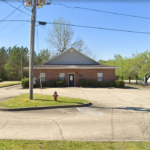Seventy percent of the eligible voters in France expressed their opinion on Sunday, May 29 – a turnout not seen in any recent election. Fifty-five percent of them voted a resounding ‘NO’ to the proposed European Union Constitution – an overwhelming defeat. In a show of independence they ignored the endorsement of the proposed Constitution by all of the country’s major political parties, except the Communists.
While opinion polls had largely predicted a ‘Non‘ victory, the size and scope of the rejection has consequences for both France and Europe. President Jacques Chirac’s governing UMP party had already been badly wounded – losing recent local and territorial elections. Now, despite a large majority in the Assemblée Générale (France’s Lower House) it is obvious that the current Prime Minister and many cabinet members no longer have the endorsement of the people. They are on the way out, but whether any replacement can do much better remains questionable.
In the short term the European Union, as it’s currently governed, will not be greatly affected. Nor will the insurance industry, which will continue to expand into new territory and to merge and combine operations to decrease costs. But in future years the rejection of the Constitution – drafted under the leadership of former French President Valerie Giscard-d’Estaing and heavily endorsed by Chirac – will slow any further moves toward European unity and any further expansion.
Commentators and analysts have cited myriad reasons for the defeat – fear of losing generous social benefits; a reaction against the recent enlargement of the EU to 25 member states; the apparent endorsement of the “Anglo-Saxon” economic model, which many voters felt would increase France’s already high unemployment; concern over the diminishing role France plays in the leadership of the EU; Turkey’s application for admission, etc.
The list of specifics is long, but basically the referendum combined three interconnected factors that spelled its doom. To a large proportion of French voters the referendum wasn’t about the Constitution at all, but signaled their rejection of elitist French politicians in general and Chirac and his government in particular. They took the opportunity to say that they are tired of being asked to rubber stamp unpopular decisions. They also expressed a wave of resentment that has built up over the years towards the dictates of a faceless European bureaucracy, which the French, as well as other European governments, have largely blamed for things that are actually the consequences of their own actions. Finally, the French – and next week the Dutch – electorate is fed up with being frozen out of the representative process. They are alienated by both their ostensible representatives – who represent them in name only, and they are fed up with bureaucrats who pass laws and regulations that effect their lives, but over which they seemingly have no control. To 55 percent of French voters the proposed Constitution would have further installed that system, and they therefore rejected it.
As an example of how all this came together, consider the story that appeared last week on French TV. The mayor of a fair sized town in the middle of France was interviewed complaining that “Brussels [where the EU’s Commission is located] made us upgrade all our traffic lights so they’d blink yellow if there was an electrical failure – it cost 1.2 million euros [$1.5 million].” The change seems perfectly reasonable as a safety measure, and the regional and national governments probably paid most of the money. However, the way it was presented and the anonymity of the command angered the mayor and presumably a number of his constituents. They voted ‘NO’ in protest.
A possible fourth factor, or at least an enabling one, was Chirac’s own hubris. Any American politician from Tip” O’Neil to Karl Rove, could have told him that “all politics is local.” Despite his low approval levels of around 30 percent, he believed that the French would automatically endorse the Constitution. He ignored the plethora of warning signs that the referendum would be turned into a plebiscite on his 10 years as President, rather than a straight up and down vote on a lengthy document most people couldn’t even begin to understand. Despite all his posturing, the voters simply wouldn’t ignore the fact that unemployment remains high at around 10 percent; the government’s reform efforts have been met with massive opposition; there’s a lot of lingering resentment over the adoption of the euro and the EU enlargement (in which French voters had no say) and many other concerns.
So, why do you call a needless electoral referendum? The parliament, which Chirac’s UMP party controls, could have easily voted to accept the Constitution. Speculation ranges between the President being terminally dumb (he did much the same thing when he called an unnecessary parliamentary election in 1997 – which his party lost) to conspiracy theories that he really wanted the vote to fail as a way of increasing French influence in the EU. There may be a gain of truth in both, but the most likely reason was a gross miscalculation of the mood of the voters caused by being totally out of touch with them.
The French political elite talks mainly to themselves. Almost all of France’s leading politicians – left, right and center – attended the Ecole Nationale Superieur d’Administration. These “enarques,” as they are called, run the country, and Chirac figured that, as all of the major political parties supported the Constitution, the voters would follow their leaders. He faced only a motley opposition from a collection of Communists, Trotskyites and anarchists on the left, and the alienated xenophobes and crypto-fascists on the right, who could never combine to oppose him. Wrong, wrong – despite their hardy dislike for one another they combined very well, aided in large part by a number of dissident Socialists, including former Prime Minister Laurent Fabius, and some members of his own UMP, who opposed the Constitution.
Only time will tell whether this is indeed a watershed event that marks the end of an era in European cooperation. It would be a shame if it did, as the U.S. and the rest of the world needs a strong and stable Europe. Europe’s leaders now face the problem that they have no fall back position. They didn’t expect the rejection and they’re not prepared to deal with it. If the Dutch reject it as well – which is widely predicted – they will have to.
One of their primary objectives should be to find ways to give Europe’s truculent and alienated voters more say in how the EU is governed. Democracy is predicated on the people’s representatives being ultimately beholden to the people whom they represent. President Chirac and the EU elite seem to have forgotten this fundamental principle. French voters chose the only way they had to remind them of it. Now it’s up to them to heed the warning.
Was this article valuable?
Here are more articles you may enjoy.


 Longtime Alabama Dentist Charged With Insurance Fraud in 2025 Office Explosion
Longtime Alabama Dentist Charged With Insurance Fraud in 2025 Office Explosion  Owner of Assisted Living Home Where 10 Died in Fire Denied Access to Insurance Funds
Owner of Assisted Living Home Where 10 Died in Fire Denied Access to Insurance Funds  Opportunity for Private Flood Insurers With Threat of Another NFIP Lapse
Opportunity for Private Flood Insurers With Threat of Another NFIP Lapse  Navigators Can’t Parse ‘Additional Insured’ Policy Wording in Georgia Explosion Case
Navigators Can’t Parse ‘Additional Insured’ Policy Wording in Georgia Explosion Case 

